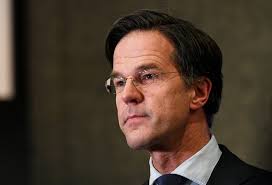Recent Developments in Dutch Politics: Mark Rutte’s Leadership

Introduction
Mark Rutte, the Prime Minister of the Netherlands since 2010, continues to be a pivotal figure in both Dutch and European politics. His leadership has shaped numerous national policies and has had significant implications for international relations within the EU. Recently, Rutte has faced challenges that could redefine his political future and the stability of his government.
Current Political Landscape
In recent weeks, Mark Rutte’s administration has been under scrutiny due to ongoing negotiations surrounding the Dutch budget and climate policies. As Europe grapples with the impact of climate change, Rutte has promised ambitious goals for reducing emissions by 2030. However, differences within his coalition government have surfaced, particularly regarding the extent and approach to these climate measures.
Moreover, Rutte’s government has also been addressing issues surrounding the cost of living crisis faced by many households in the Netherlands following the energy surge post-COVID-19. In a move aimed at alleviating these pressures, Rutte proposed various economic reforms, which have met mixed reactions from opposition parties and citizens alike.
Political Challenges Ahead
Rutte’s coalition has seen diminishing support in recent polls, with increased popularity of opposition parties raising concerns over his government’s longevity. Furthermore, Rutte is on the watch for potential defections within his administration, which could complicate further legislative agendas. His approach to immigration, housing, and social policies is another important focus for voters that could influence the upcoming elections.
The upcoming elections in the Netherlands are crucial, not only for Rutte but for the future direction of the country’s policies. The Prime Minister is anticipated to face backlash regarding his handling of social issues, which may provide fertile ground for the opposition if not addressed timely.
Conclusion
In summary, Mark Rutte remains a stalwart presence in Dutch politics, but his government faces serious challenges that could impact its stability. As the elections draw closer, the responsiveness of Rutte’s administration to public concerns on economic, social, and climate issues will be crucial. The future of Rutte’s premiership may very well depend on his ability to navigate these turbulent waters and reassure the electorate of his commitment to their wellbeing. The political landscape in the Netherlands is in a state of flux, and all eyes will be on Rutte as developments unfold leading up to the next election cycle.








